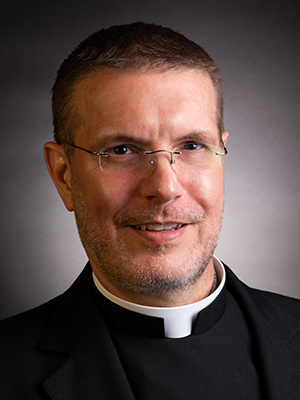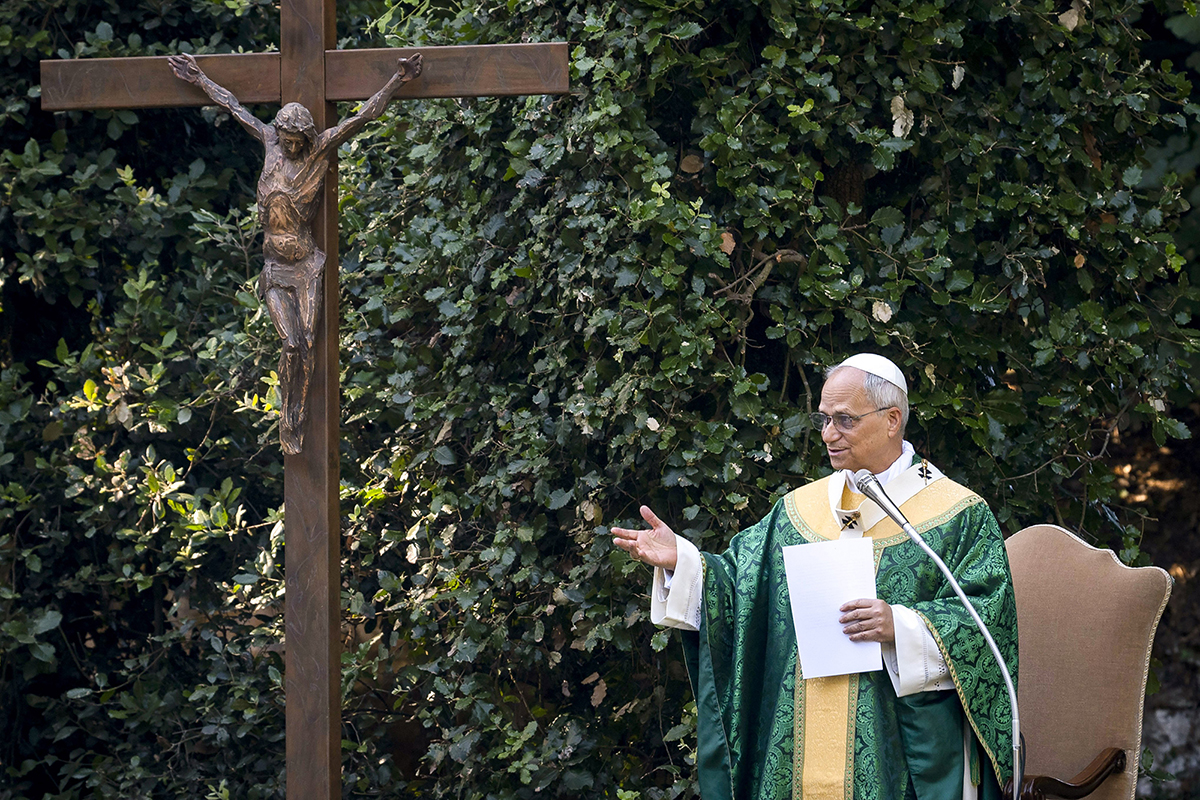DEAR FATHER | Church leaders remind politcal participants of how decisions affect the common good
What is the position of the Church regarding priests and sisters participating in political conventions?

Every election season the question arises on how the Church can give witness to Catholic social teaching without crossing the boundary into political endorsement. It is the policy of the Catholic Church in the United States that we do not endorse political parties, platforms or politicians.
However, the Catholic laity is expected to participate in the political process. The role of Church leadership is to remind the faithful that they are to be guided by Jesus’ teachings in the election of government officials and in shaping public policy. Bishops, priests and religious, however, are to remain nonpartisan during any appearance at a political event.
This stance is outlined in the Catechism of the Catholic Church: “It is not the role of the pastors of the Church to intervene directly in the political structuring and organization of social life. This task is part of the vocation of the lay faithful, acting on their own initiative with their fellow citizens” (CCC 2442).
The Code of Canon Law provides additional guidance: Clerics are “not to have an active part in political parties and in governing labor unions unless, in the judgment of competent ecclesiastical authority, the protection of the rights of the Church or the promotion of the common good requires it” (287, 2).
Given the above, it would seem that bishops, priests and religious should generally refrain from speaking at political conventions. To understand why it is acceptable in certain circumstances, we can look to our tradition. For example, Catholic priests regularly lead the opening prayer at sessions of Congress. In doing so, they are not endorsing the specific legislative acts of Congress, some of which conflict with Catholic moral teaching. Rather, they are giving witness to the Gospel of Jesus Christ so that those entrusted with public office can prayerfully consider the effects their decisions have on the common good — it is a form of evangelization.
The same can be said of bishops, priests and religious who lead prayer or speak at political conventions. Their only task is to shine the light of the Gospel on the gathered assembly and challenge them to make decisions based on a concern for the dignity of all persons. This year, Catholic prelates led the invocation at both major political conventions and their prayers were based on Catholic social teaching. One would hope that they would have been equally comfortable leading prayer at the other convention since their presence was in no way an endorsement of the political parties themselves.
It is imperative that bishops, priests and religious ensure that they are not “put on display” at political events in a way that suggests they endorse parties or politicians. Both major parties fall tragically short of the Church’s social and moral teachings. Any appearance by a Church leader at a political event should focus on reminding the participants of how their decisions affect the common good, especially the well-being of those who are most vulnerable.
For additional guidance in understanding how Catholics are to participate in the political process, see “Forming Consciences for Faithful Citizenship” by the U.S. Conference of Catholic Bishops at faithfulcitizenship.org.
Father Scott Jones is the episcopal vicar for the Northern Vicariate of the Archdiocese of St. Louis.




